AMOC webinar series
AMOC webinar series
all webinars from 4-5:30pm European time
| Archived webinars |
|
21st March 2023
Recording: https://lecture2go.uni-hamburg.de/l2go/-/get/v/65574 Title: Observations of the boundary currents and AMOC at 11°S - the TRACOS array (slides)
Abstract: |
|
18th April 2023
Recording: https://lecture2go.uni-hamburg.de/l2go/-/get/v/65931
Title: Carbon and nutrient transports in the subtropics (slides)
Speaker: Elaine McDonagh (NORCE, Norway)
Bio: Abstract:
As a result of the AMOC the North Atlantic absorbs a disproportionately large amount of carbon for its area. Using observations from RAPID-MOCHA, Argo and GO-SHIP at 26N we reconstruct time series of anthropogenic carbon and inorganic nutrient transports into the North Atlantic. On average half of the anthropogenic carbon that is accumulating in the North Atlantic is transported into the region across 26N, the remainder comes from local air-sea fluxes. While most of the variance in the northward anthropogenic carbon transport can be described by variability in the strength of the AMOC there is a significant contribution form the increasing anthropogenic carbon concentrations, preferentially accumulating in the near-surface. The persistently southward nutrient transports across 26N exceed external nutrient sources and thus in themselves indicate non steady-state behaviour. In addition increasing remineralised:preformed nutrient ratios at 26N indicate further non steady-state behavoiur and regionally increasing biological carbon pump efficiency consistent with a transient response to circulation changes.
Title: How do we improve observational-based estimates and model representations of AMOC? (slides) Bio: Gokhan Danabasoglu is a Senior Scientist and the Chief Scientist for the Community Earth System Model (CESM) at the National Center for Atmospheric Research. His research interests include understanding the role of the oceans in the Earth’s climate system; computational modeling of the oceans; and investigations of mechanisms, prediction, and impacts of inter-annual to decadal time scale Earth system / climate variability, particularly associated with the North Atlantic and the Atlantic meridional overturning circulation (AMOC). Abstract:
Joint and consistent analysis of model simulations and observations of the Atlantic Meridional Overturning Circulation (AMOC) is important to advance our understanding of its trends, variability, and mechanisms as well as its latitudinal coherency. It is important that such model – observations comparisons use the same or as-close-as-practically-possible methods as applied in observations to provide apples-to-apples comparisons. Considering the Meridional Overturning Variability Experiment (MOVE) array at 16°N, the RAPID Array at 26.5°N, the South Atlantic MOC Basin-wide Array (SAMBA) at 34.5°S, and the Overturning in the Subpolar North Atlantic Program (OSNAP) array at 57°N, we revisit the underlying assumptions used to calculate their respective transports in comparison to transports from an eddying ocean hindcast simulation where transports obtained using the same observational methods can be directly compared against model truth. Our analysis reveals significant sensitivity of simulated and observed transports and their variability and trends to various reference level assumptions. Indeed, given i) the short observational records, ii) strong dependencies of transport estimates to their barotropic / compensating components, and iii) the presence of large interannual-to-decadal timescale variability, whether AMOC has been declining or not during the last couple of decades cannot be meaningfully determined. In general, simulated variability is weaker than in observations, particularly for the 9-site SAMBA estimate. We show reasons for these differences, considering contributions of transport components and the underlying transport assumptions associated with the observational methods. We also discuss complementarity of depth- and density-space AMOC depictions.
|
|
23rd May 2023
Recording: https://lecture2go.uni-hamburg.de/l2go/-/get/v/66549
Title: Freshwater and AMOC in the North Atlantic Subpolar Gyre Speaker: Fiamma Straneo (Scripps Institution of Oceanography, USA)
Bio:
Abstract: Increasing freshwater discharge from the loss of Arctic sea-ice and from melting of the Greenland Ice Sheet has the potential to affect the AMOC by reducing dense water formation. In addition to these longer term trends, episodic release of freshwater from the Arctic (e.g. Great Salinity Anomalies) cyclically result in a modification of the stratification, dense water properties and, at times, a temporary slow down or shut down of convection. Here, I present some recent observation-based studies as part of the OSNAP (Overturning in the Subpolar North Atlantic Program) Program that provide insight into some of the processes and dynamics that are responsible for the spreading and mixing of freshwater. Specifically, I will present recent findings related to the circulation and spreading of Greenland meltwater, to the circulation and impact of the latest GSA in the Subpolar North Atlantic and, finally, a baseline estimate for the fraction of Arctic freshwater export that is entrained in the AMOC. Collectively, these studies point at the need to understand the processes that govern the freshwater transport and transformation before we can model their long-term impact on the AMOC. Title: Simulation-based approaches for quantitative observing system design (not presented due to technical issue) Bio:
Abstract: The North Atlantic Ocean circulation is the result of a range of physical processes, from large-scale gyre circulation (subtropical and subpolar), associated Ekman transports, fluctuations of the gyre boundaries, westward intensification that gives rise to the Gulf Stream, watermass transformation at high latitudes along continental boundaries and in the interior, complex ("return") flows at depth, Arctic sub-Arctic exchanges, efficient communication between the tropics and mid-to-high latitude through wave propagation along eastern boundaries, westward traveling Rossby waves, geostrophic eddies, and submesoscale processes, to name but a few. Interactions with the atmosphere and topography set crucial boundary conditions on the flow. For historical reasons, much of that circulation has been subsumed under a metric called the Atlantic Meridional Overturning Circulation (AMOC), which provides a heavily space (and time)-averaged depiction of the circulation. Understanding the role that the different elements, which make up the circulation, play, has involved a diverse and heterogeneous stream of observations (satellite and in-situ), which, taken together constitute a sparse, eclectic observing system. Arguably, a rigorous way to combine the knowledge reservoir offered by the available, yet incomplete observations with the knowledge reservoir that is encapsulated in the governing equations of motion, rendered in the form of numerical models, is through formal ocean state and parameter estimation. The adjoint-based effort pursued by the Estimating the Circulation and Climate of the Ocean (ECCO) consortium has produced state estimates that have provided valuable insights into the AMOC in a number of studies. Beyond the use of the adjoint for state estimation, the tool has proven powerful in causal, dynamical attribution studies of subtropical and subpolar North (and South) Atlantic MOC. Furthermore, use of the adjoint and Hessian are enabling rigorous studies of quantitative observing system design within the framework of uncertainty quantification.
This talk provides an overview of how the adjoint-based modeling framework has supported studies of AMOC variability and observing system design. It is meant to set the stage for more detailed presentations these subjects.
Title: The AMOC volume transport time series at 47N
Speaker: Monika Rhein, (IUP-MARUM, University Bremen)
Bio:
Monika Rhein is since 2000 the head of the Physical Oceanography department at the University Bremen. Her research interest includes ventilation and large-scale circulation in the Atlantic ocean.
Abstract:
The AMOC in models and in observations disagree on many aspects. Here we calculate the AMOC volume transport at 47N (the NOAC array) from observations only, combining moorings at the western and eastern boundaries, PIES in the interior, altimetry and the ARMOR3D data set. The mean AMOC transport from 1993 – 2018 is 17.2 Sv, with no significant long-term trend. The low pass filtered AMOC is significantly correlated with the RAPID AMOC at 26N with r = 0. 53− 0. 71 (depending on the filtering method). The correlation increases to r = 0. 72–0. 84 when 47N leads by 10 months. This finding either points to an extended subtropical regime reaching farther north than anticipated before or challenges the notion that the subtropical and subpolar regimes are decoupled on inter-annual timescales.
|
|
20th June 2023
Recordings: https://lecture2go.uni-hamburg.de/l2go/-/get/v/66915 Title: Recent observational advances from the South Atlantic Meridional Overturning Circulation (SAMOC) initiative (slides) Bio: Abstracts:
The South Atlantic is a key gateway for water mass and property exchanges between the Atlantic and other basins, and is thus a crucial place to measure changes in the Atlantic Meridional Overturning Circulation (AMOC). The international South Atlantic Meridional Overturning Circulation (SAMOC) initiative has made numerous advances in observing the variability of heat, fresh-water, and volume (mass) transports by the AMOC in the South Atlantic, as well as studying their connection to interocean exchanges, over the past fifteen years. Moored arrays established in the tropical and subtropical South Atlantic have been transformative for AMOC science, providing continuous daily observations of AMOC, as well as interior and abyssal transport pathways. Recent hydrographic sections provide exciting results about the interplay between eddies and volume, heat, and fresh-water transports by AMOC. Multi-decadal satellite-based products and blended satellite-in situ products provide new information about the connectivity between AMOC variations in the South and North Atlantic, and provide opportunities for cross-validation of mooring-based AMOC observations. SAMOC observations are being used to validate and inform improvements to state-of-the-art numerical models, so that models can improve and provide better insights on the dynamical mechanisms driving AMOC variations in the South Atlantic. As SAMOC data records become longer and new observations coming online, we anticipate that their use by the community will increase spurring new research advancements. During this presentation, we will summarize key findings from ongoing SAMOC observing efforts, and describe expansions to the SAMOC observing system, and discuss some ways in which the observing system might evolve in the future.
Title: GOHSnap: Updates from the field (slides)
Abstract: Over the last century, the ocean has become steadily more depleted in oxygen while also absorbing about 25% of the anthropogenic carbon dioxide added to the atmosphere each year. Therefore, observing gas uptake and transport processes is essential for understanding and predicting the evolution of the ocean and climate system. While it is often assumed that a slowdown in the AMOC will lead to deoxygenation of the deep ocean and a decrease in the uptake and storage of carbon, we have never had observations sufficient to test these assumptions. In this talk, I will describe a collaborative project called Gases in the Overturning and Horizontal circulation of the Subpolar North Atlantic Program (GOHSNAP), in which we deployed oxygen sensors over the full depth of OSNAP moorings in the Labrador Current and on both sides of Cape Farewell, Greenland, and pCO2 sensors at few key locations near the ocean's surface. We are using these additions to the moored array to investigate the rates and processes governing gas exchange and separate the role of the overturning and horizontal circulation on the export of gases from the Labrador Sea. The first gas sensor data from this program was recovered in summer of 2022, so the emphasis of this talk will be on the hydrographic data that led to GOHSNAP's hypotheses, tips and tricks for collecting oxygen data on moorings, and a sneak peek of preliminary results. |





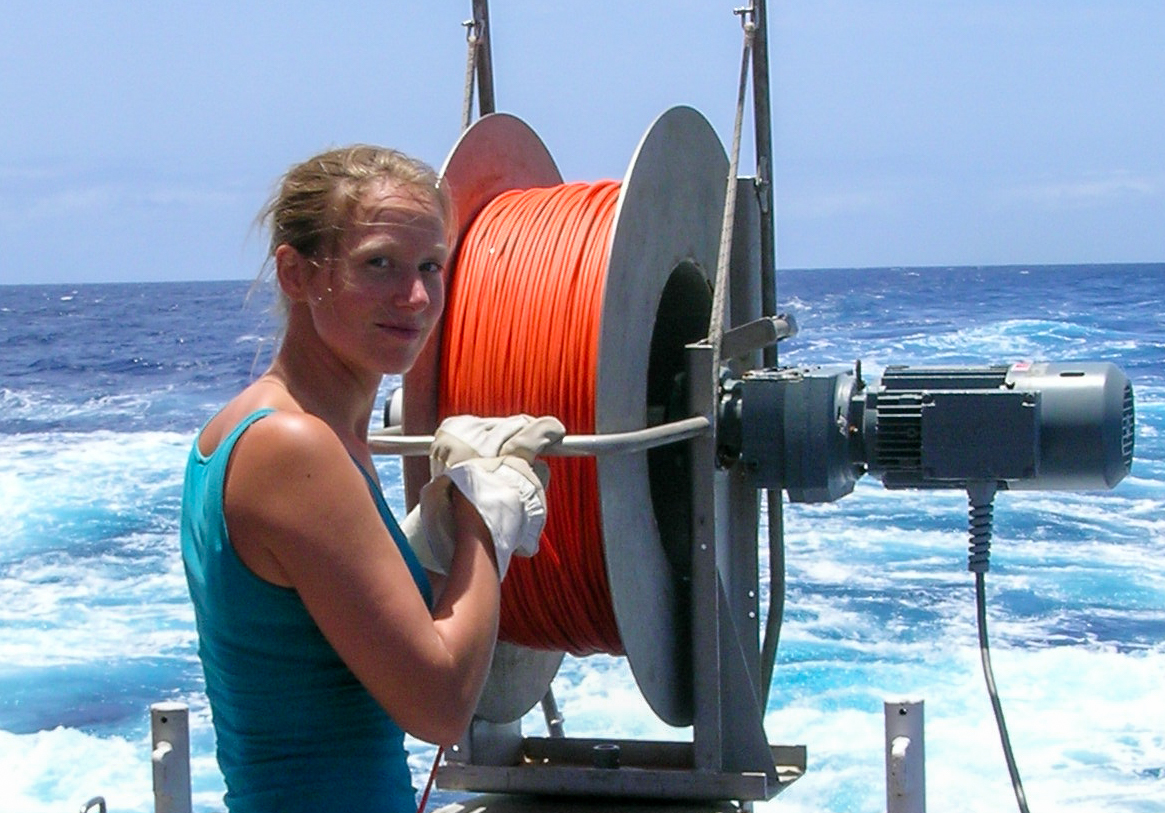 Bio:
Bio: Elaine McDonagh is a Research Professor at the Norwegian Research Institute, NORCE, and part of the Bjerknes Centre for Climate Research in Bergen, Norway. Prior to moving to Bergen in 2019 she was in the Marine Physics and Climate Group at the National Oceanography Centre, UK, for 19 years, where she continues to have a position. Her undergraduate degree in Environmental Sciences and PhD were completed at the University of East Anglia. Her research interests are in the oceans´ role in climate, particularly how the ocean takes up heat, freshwater and carbon and the interaction with ocean circulation and water masses. She coordinates the Horizons Europe project EuroGO-SHIP and co-chairs the International GO-SHIP programme that makes the observations on which her research is based.
Elaine McDonagh is a Research Professor at the Norwegian Research Institute, NORCE, and part of the Bjerknes Centre for Climate Research in Bergen, Norway. Prior to moving to Bergen in 2019 she was in the Marine Physics and Climate Group at the National Oceanography Centre, UK, for 19 years, where she continues to have a position. Her undergraduate degree in Environmental Sciences and PhD were completed at the University of East Anglia. Her research interests are in the oceans´ role in climate, particularly how the ocean takes up heat, freshwater and carbon and the interaction with ocean circulation and water masses. She coordinates the Horizons Europe project EuroGO-SHIP and co-chairs the International GO-SHIP programme that makes the observations on which her research is based.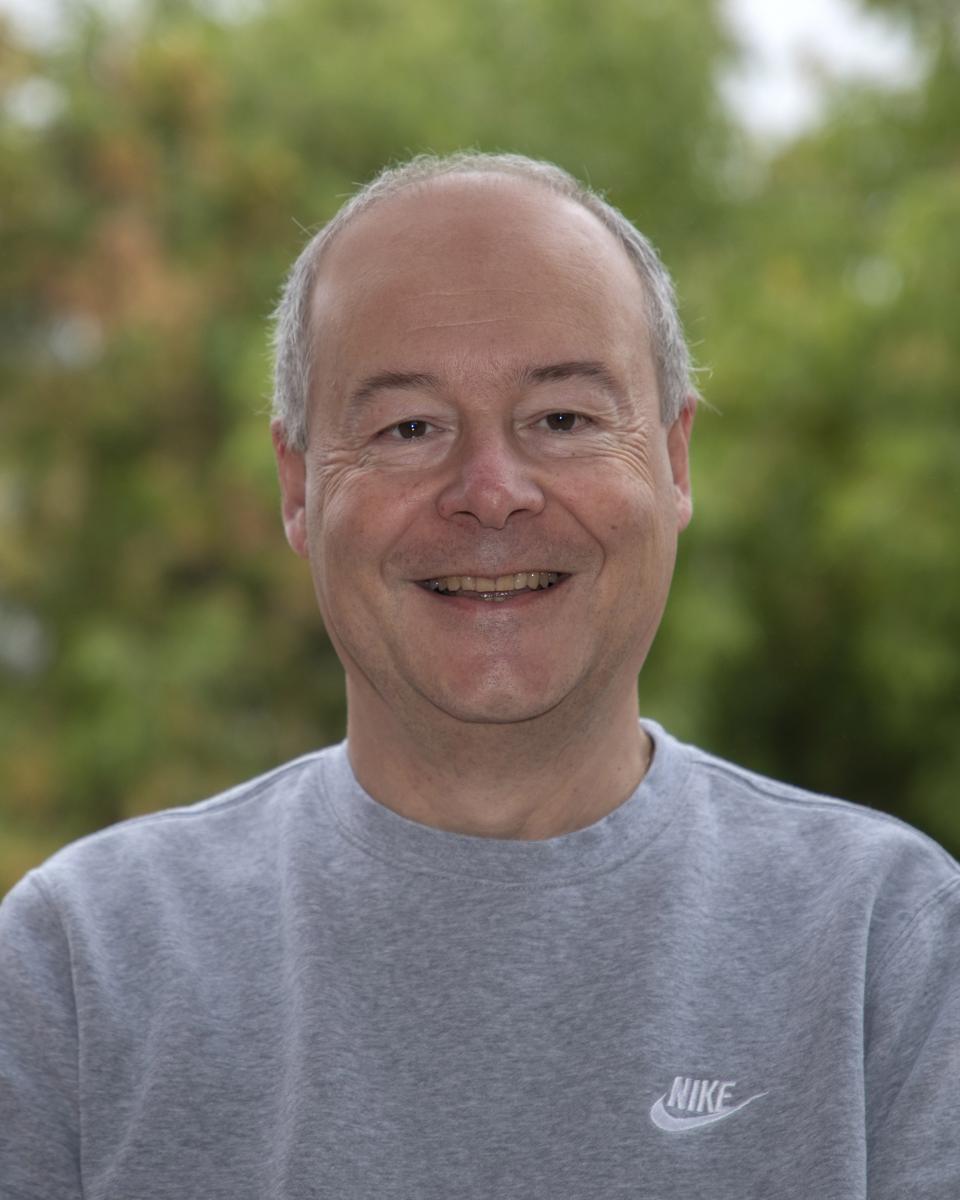 Speaker: Gokhan Danabasoglu (NCAR, USA)
Speaker: Gokhan Danabasoglu (NCAR, USA) 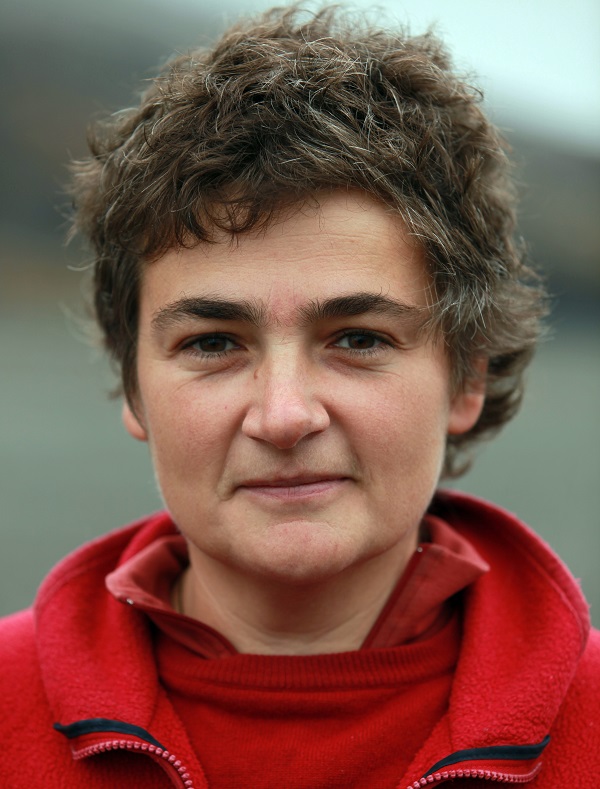 Fiamma Straneo is a Professor and the co-Director of the Polar Center at the Scripps Institution of Oceanography of the University of California San Diego. Prior to this position, she was a scientist at the Woods Hole Oceanographic Institution from 2000 to 2017. Her research focuses on the high latitude North Atlantic and Arctic Oceans, their interaction with the atmosphere, sea-ice and the Greenland Ice Sheet, and the Atlantic Meridional Overturning Circulation. Much of her work involves interpreting data from the high latitudes collected using platforms such as icebreakers, fishing vessels, helicopters, snowmobiles and autonomous surface and underwater vehicles. Straneo has led over 20 field expeditions to the Arctic and Greenland. She co-chaired the Climate and Cryosphere Program of the World Climate Research Program from 2018-2022 and is a co-chair and founder of the Greenland Ice Sheet/Ocean Science Network (GRISO).
Fiamma Straneo is a Professor and the co-Director of the Polar Center at the Scripps Institution of Oceanography of the University of California San Diego. Prior to this position, she was a scientist at the Woods Hole Oceanographic Institution from 2000 to 2017. Her research focuses on the high latitude North Atlantic and Arctic Oceans, their interaction with the atmosphere, sea-ice and the Greenland Ice Sheet, and the Atlantic Meridional Overturning Circulation. Much of her work involves interpreting data from the high latitudes collected using platforms such as icebreakers, fishing vessels, helicopters, snowmobiles and autonomous surface and underwater vehicles. Straneo has led over 20 field expeditions to the Arctic and Greenland. She co-chaired the Climate and Cryosphere Program of the World Climate Research Program from 2018-2022 and is a co-chair and founder of the Greenland Ice Sheet/Ocean Science Network (GRISO). Patrick Heimbach is a computational oceanographer, professor in the Jackson School of Geosciences, and W. A. “Tex” Moncrief, Jr., chair III in Simulation-Based Engineering and Sciences in the Oden Institute at the University of Texas at Austin. His research focuses on ocean and ice dynamics and their role in the global climate system. He is an expert on the use of inverse methods and automatic differentiation applied to ocean and sea ice model parameter and state estimation, uncertainty quantification and observing system design. Patrick earned his Ph.D. from the Max-Planck-Institute for Meteorology and the University of Hamburg, Germany. Prior to joining UT, he spent 16 years at MIT. Among his past and present professional services are memberships on the US National Academy of Sciences’ Ocean Studies Board, NSF’s Advisory Committee for Cyberinfrastructure, the CLIVAR/CliC Northern Ocean Regional Panel, the US CLIVAR Ocean Uncertainty Quantification working group, and the UN Ocean Decade’s Deep Ocean Observing Strategy (DOOS) programme.
Patrick Heimbach is a computational oceanographer, professor in the Jackson School of Geosciences, and W. A. “Tex” Moncrief, Jr., chair III in Simulation-Based Engineering and Sciences in the Oden Institute at the University of Texas at Austin. His research focuses on ocean and ice dynamics and their role in the global climate system. He is an expert on the use of inverse methods and automatic differentiation applied to ocean and sea ice model parameter and state estimation, uncertainty quantification and observing system design. Patrick earned his Ph.D. from the Max-Planck-Institute for Meteorology and the University of Hamburg, Germany. Prior to joining UT, he spent 16 years at MIT. Among his past and present professional services are memberships on the US National Academy of Sciences’ Ocean Studies Board, NSF’s Advisory Committee for Cyberinfrastructure, the CLIVAR/CliC Northern Ocean Regional Panel, the US CLIVAR Ocean Uncertainty Quantification working group, and the UN Ocean Decade’s Deep Ocean Observing Strategy (DOOS) programme.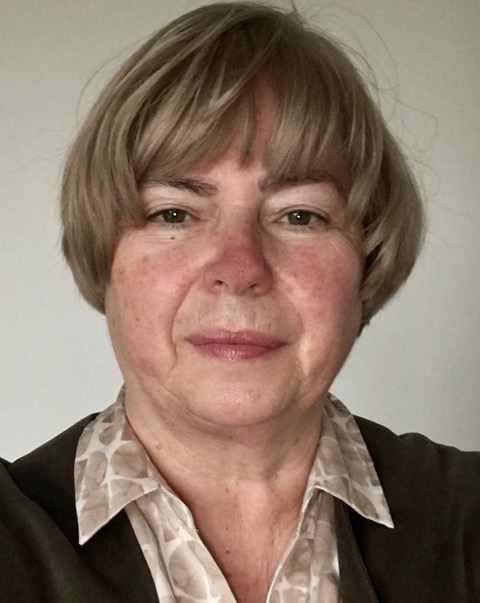
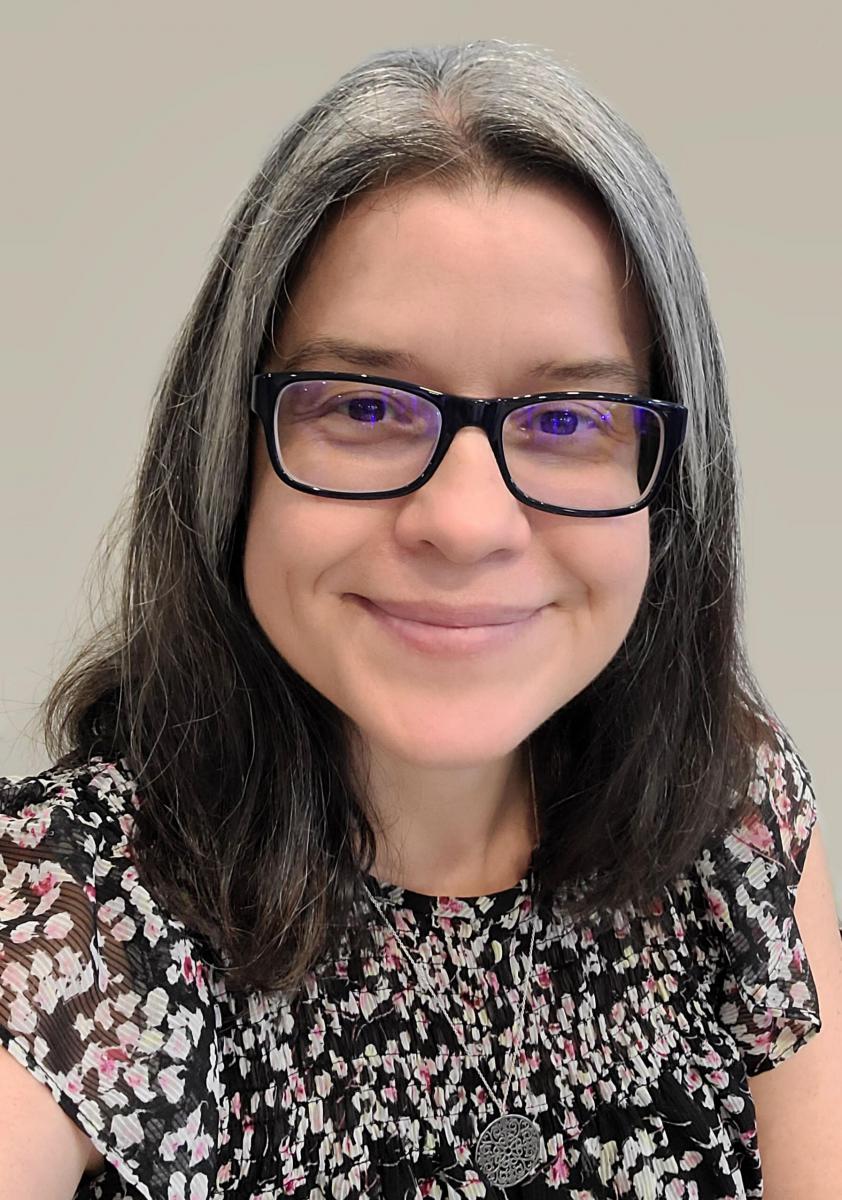 Renellys Perez is an oceanographer at NOAA's Atlantic Oceanographic and Meteorological Laboratory (AOML), and is the Deputy Director of the Physical Oceanography Division. Her research is focused on tropical Atlantic variability and the processes that influence sea surface temperature and ocean current variability in the Atlantic, and characterizing the variability of the boundary currents and the overturning circulation in the South Atlantic and their influence on weather, climate, and sea level. She is the lead investigator of the Southwest Atlantic Meridional overturning circulation (SAM) and the Tropical Atlantic Current Observations Study (TACOS), and is the co-lead investigator of the PIRATA Northeast Extension (PNE) project. Through her collaborations with NOAA and national and international scientists, she understands the importance of developing an all-Atlantic observing strategy to tackle important problems like the Atlantic overturning circulation. She has participated in various national and international panels including the US CLIVAR Phenomena, Observations, and Synthesis panel (member 2014-2015, co-chair 2015-2017), US AMOC Task Team 1 (vice-chair 2014, chair 2015), SAMOC Executive Committee (member 2020-present), AtlantOS Steering Committee (2021-present), and the PIRATA Scientific Steering Group (2022-present). She received a Ph.D. in oceanography from Oregon State University in 2006, and was a National Research Council research associate from 2006-2008. She is passionate about building a more diverse and inclusive science community through mentorship and outreach.
Renellys Perez is an oceanographer at NOAA's Atlantic Oceanographic and Meteorological Laboratory (AOML), and is the Deputy Director of the Physical Oceanography Division. Her research is focused on tropical Atlantic variability and the processes that influence sea surface temperature and ocean current variability in the Atlantic, and characterizing the variability of the boundary currents and the overturning circulation in the South Atlantic and their influence on weather, climate, and sea level. She is the lead investigator of the Southwest Atlantic Meridional overturning circulation (SAM) and the Tropical Atlantic Current Observations Study (TACOS), and is the co-lead investigator of the PIRATA Northeast Extension (PNE) project. Through her collaborations with NOAA and national and international scientists, she understands the importance of developing an all-Atlantic observing strategy to tackle important problems like the Atlantic overturning circulation. She has participated in various national and international panels including the US CLIVAR Phenomena, Observations, and Synthesis panel (member 2014-2015, co-chair 2015-2017), US AMOC Task Team 1 (vice-chair 2014, chair 2015), SAMOC Executive Committee (member 2020-present), AtlantOS Steering Committee (2021-present), and the PIRATA Scientific Steering Group (2022-present). She received a Ph.D. in oceanography from Oregon State University in 2006, and was a National Research Council research associate from 2006-2008. She is passionate about building a more diverse and inclusive science community through mentorship and outreach.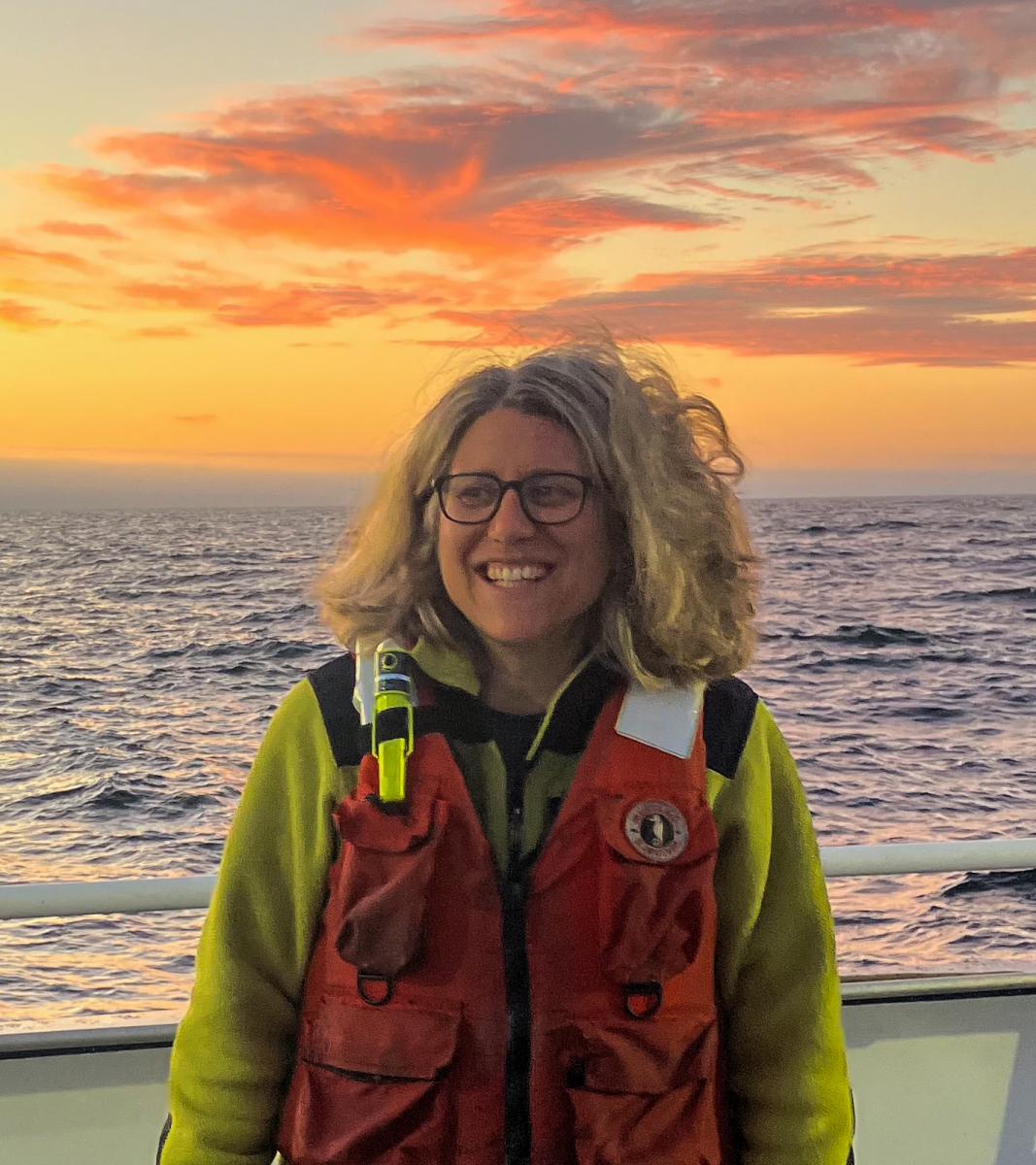 Bio:
Bio:





Add new comment